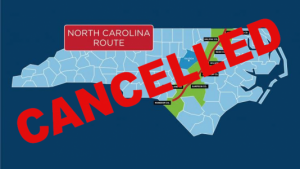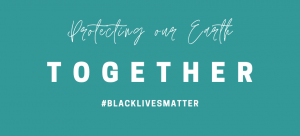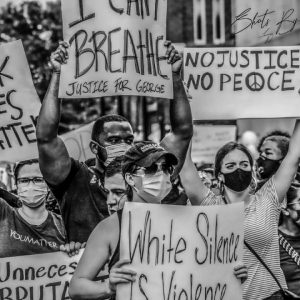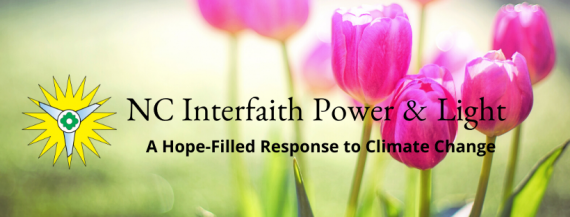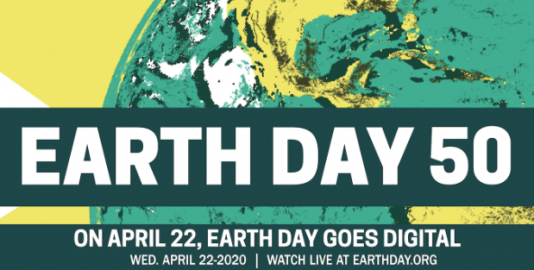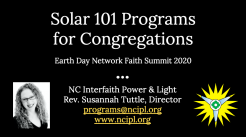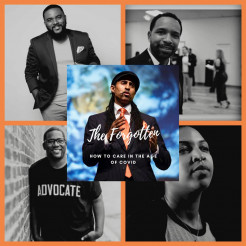Getting Real About Poverty and the Environment
Getting Real About Poverty and the Environment
By Kathy Whitaker Knight
So first, let’s get literal with this … environment is synonymous with surroundings, location, atmosphere, situation. Poverty is synonymous with shortage, deficiency, scarcity, and lack.
What needs to be understood is that poverty creates its own priorities. Those who would damage the environment are clear about those concepts. That’s why they choose poor communities to bring the destruction to. The community of people who wish to protect the environment need to understand those realities as well.
The thing is, it goes back to the haves and the have nots. What would make one think about air quality in the face of homelessness? Is it relevant to one who has no way to heat water, that the forest is being destroyed? If you live with the fact you must keep a household going with $512.00 per month, can you afford the luxury of recycling newspaper in the way that environmentalists would? No, because maybe you’d use the newspaper you picked up from the parking lot to put in the cracks around your window sill. Is it possible that the glass jars environmentalists would have you put in a recycling bin are use to drink from?
Many issues around maintaining optimum health are affected by poverty. Mold is damaging to some people, has a negative impact on respiratory function of many. Buildings in areas with high moisture often have conditions that are perfect for developing mold. Has anyone paid attention to where and how low income housing is built? Mobile homes generally have carpet throughout with the exception of kitchens and bathrooms. Dust mites thrive in carpet and underneath the carpet in a mobile home is often a surface that can’t be used without some type of covering. What if your child is diagnosed with allergies to mold and dust mites? Imagine having to pay for allergy medications without health insurance. How many working poor families don’t have health insurance? Remember that single adults don’t get Medicaid in NC. That, my friends, is a situation.
Mobile homes are usually hardest hit by any natural disaster; let your mind return to the footage from newscasts after a tornado or hurricane. Have environmentalists looked at who mobile homes are marketed to and when? Mobile home companies tie their marketing to tax returns in poor communities – some even help folks file their taxes! Same with the timing of the lottery. Is it coincidental that the sales began during the time that many poor folk are getting tax refunds and feeling like they may actually catch up with the bills? News reports today indicate that the highest sales for lottery tickets are in poor counties. Surprised? Poverty is big business in these United States!! Always has been.
You can’t talk about the environment without looking at who owns the land. Who is in a position to negotiate with corporate entities looking to move in a landfill or intensive livestock operation? Perhaps the energy needs to be redirected – is the environmental activist community ready to look at and deal with the wealthy community? Work is done to organize poor communities to fight for the environment. Hey, poor folk deal with their environment 24/7. Have to – it’s not a multiple choice thing. So maybe go to those who can afford to take a couple of days off to attend a conference. Teach them about the environment. Teach them to provide scholarships, child care stipends, transportation reimbursements or better yet UP FRONT money to travel with. Learn that it’s not always apathy, it’s often that poor folk have different priorities, plan differently.
When you plan an event, do you think of what part of the month it is to take place? When do most folk get paid? Who’s the largest employer in the area you’re working? You should know when they get paid. Do you know when state employees get paid? Do you know when SSI, TANF, SSDI checks arrive? Then there’s the issue of location. Are you asking people to come to a location that may be uncomfortable to a person with minimal funds? Please know that everyone doesn’t have money to use for meals outside of the home, taking people to a place where a deli sandwich costs $6.95 is NOT a good plan.
Setting includes food, seating, and even temperature of the rooms. Take a little time to learn about people living with poverty. You may find that they like hearty food, don’t feel the need to count calories and carbs at every meal. If there’s time, how about sending out a proposed menu and asking for feedback. Country folk don’t usually want to sit still and be “talked at” for long periods of time; that’s easier for academics, but that’s not who you’re trying to organize is it? Do you throw around acronyms at the table without making sure everyone knows what they mean? This may sound trivial to some, but cultural competence is more than having a “friend” of another race.
Know that the environment is important, but understand the situation includes consideration of the lack of funds as well as the shortage of time off. There’s often a poor quality of communication when it comes to poverty and the environment. It will take people from all walks of life to get the work done; we’ve got to act like we know that. I’d love to hear thoughts from others on this.
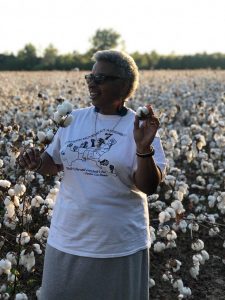
Kathy Whitaker Knight wrote this article in 2006 in her role as the Director of the Area Wide Health Committee, a program of Concerned Citizens of Tillery. CCT is a grassroots organization with a history of working for positive change for over thirty-five years. The organization works for environmental justice, land loss prevention, accessible quality health care and effective community education along with many other issues.
Kathy joined the NCIPL team in the summer of 2020 as a Faith Energy Champion program partner with The Roanoke Center and Roanoke Electric Cooperative (REC). She is a REC member-owner and lives in Tillery located in Northeastern North Carolina. Kathy received a BSW from East Carolina University (graduated at age 40). Kathy spent a very rewarding 25 years working with MH/SA/ID populations, DV/SA survivors, Breast Cancer survivors, PLWHA and their families. She is currently in her second year of working as a 2020 Census Field Supervisor. Kathy is married with a big blended family of 6 children and 9 grandchildren and has a couple of lively German Shepherds, running the yard.
Contact Kathy: kknight@roanokecenter.org


